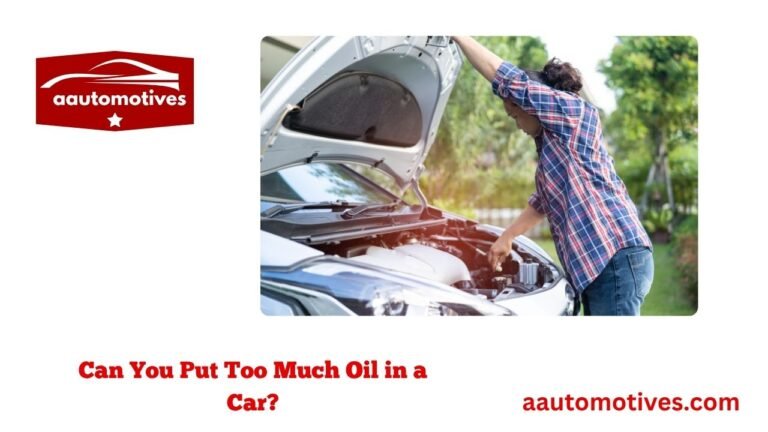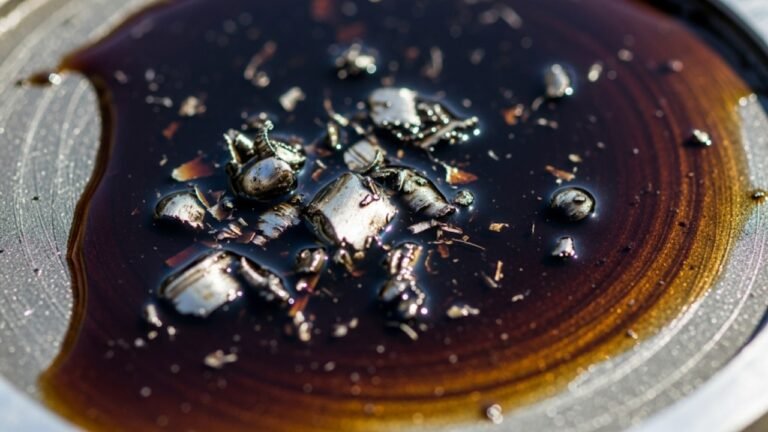Quaker State vs Castrol: My Honest Experience
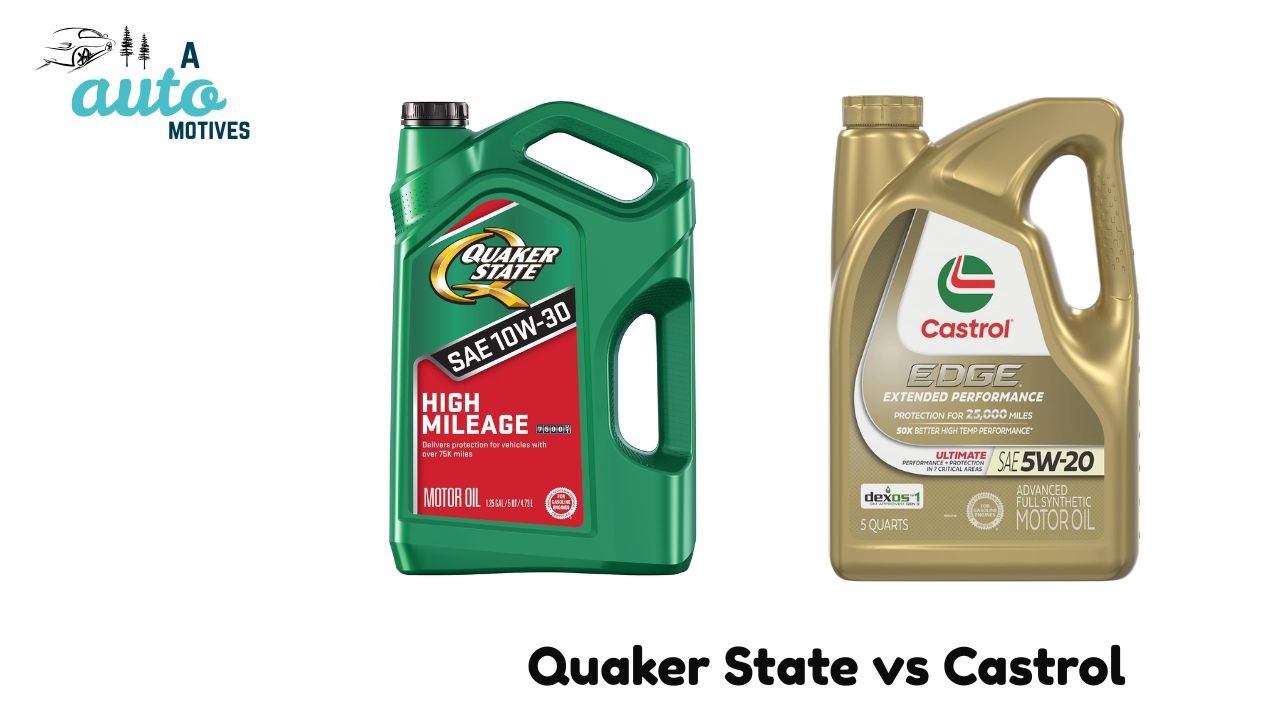
When it comes to car care, few topics spark as much debate as engine oil. Some swear by Castrol, others remain loyal to Quaker State. But after years of testing both oils in real-life driving—freezing mornings, scorching highways, and stop-and-go traffic—I finally have an honest verdict to share.
If you’re standing in the auto parts aisle, wondering which bottle to grab, let me walk you through what I’ve actually experienced. Not the marketing talk, not lab numbers—just what happens when real engines meet real roads.
Is Quaker State a Good Oil?
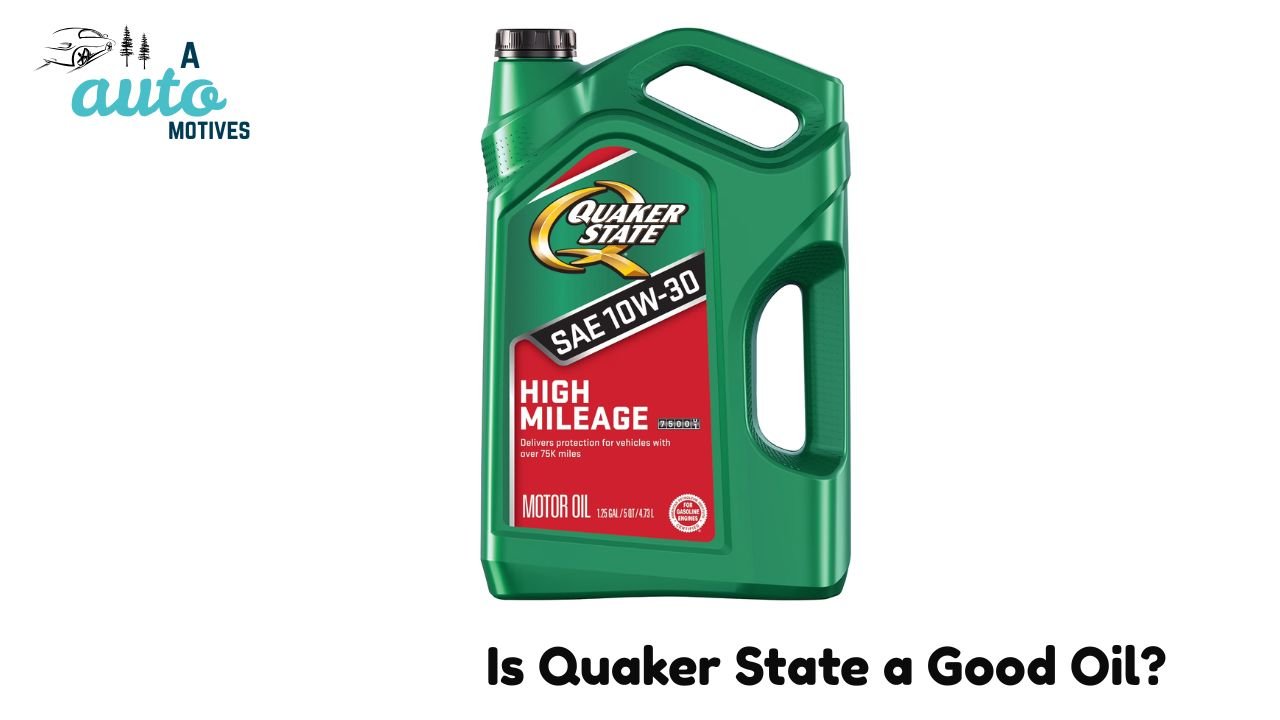
The short answer? Yes. Quaker State has earned its reputation for being reliable, especially for everyday drivers who need consistent protection. I’ve used Quaker State Full Synthetic 5W-30 for several seasons, and the one thing I can confidently say—it doesn’t quit on you.
Back when I first switched to Quaker State, my old sedan was already past 80,000 miles. It had been running on conventional oil before, and the engine sounded a bit tired. But within a few weeks of using Quaker State, I noticed the difference—the engine sounded smoother, idled quietly, and the cold morning starts became effortless.
Real-World Experience with Quaker State
1. Cold Weather Performance
I live in a place where winter mornings feel like you’re starting a car inside a refrigerator. Many oils thicken in extreme cold, causing rough starts. But Quaker State handled it beautifully. Even at 10°F, my car started with a steady hum. The oil clearly circulated quickly, which matters when you’re protecting metal parts from early wear.
2. Long Highway Drives
My work often takes me on long trips. One summer, I drove nearly 900 miles in two days. Normally, long drives at high speeds can cause oil breakdown, but Quaker State held its viscosity. The car didn’t feel sluggish or noisy by the end of the trip. I even noticed about 1.5 MPG better fuel economy compared to conventional oil—small but noticeable over time.
3. City Traffic and Stop-And-Go Stress
City driving is brutal—engines heat up, idle for minutes, and restart constantly. With Quaker State, my temperature gauge stayed steady, and the engine noise was consistently lower. It felt like the oil absorbed the punishment gracefully.
Technical Details of Quaker State
-
Viscosity Grades: 0W-20, 5W-30, 10W-40
-
Oil Type: Available in full synthetic, synthetic blend, and conventional
-
Certifications: API SN Plus, ILSAC GF-6, Dexos1 Gen 2 approved
-
Additives:
-
Detergents that keep the engine clean
-
Friction modifiers that reduce drag
-
Anti-wear agents that form a protective layer
-
I typically change Quaker State synthetic oil every 8,000 miles, though it’s rated for up to 10,000 miles. The oil still looked decent even at that mark—darkened but not thick or sludgy.
What I Like About Quaker State
-
Strong Protection: Keeps internal parts clean and minimizes wear.
-
Quiet Operation: My engine sounded smoother after the switch.
-
Performs in All Seasons: No issues in cold starts or during summer heat.
-
Fuel Efficiency: Slight boost in mileage.
-
Longer Change Intervals: Saves time and money in the long run.
What Could Be Improved
-
Price: Full synthetic costs a bit more than conventional oil.
-
Availability: Some specific viscosity options are hard to find locally.
-
Not Always Ideal for Older Engines: Very high-mileage engines may need a thicker oil.
Still, for most modern cars, Quaker State does a stellar job. If you maintain your vehicle well, this oil can easily add life to your engine.
Who Should Use Quaker State
If you:
-
Drive long distances or commute daily
-
Live in extreme heat or cold
-
Own a turbocharged or hybrid vehicle
-
Prefer longer intervals between oil changes
Then Quaker State is a perfect fit.
But if you:
-
Own an older car that leaks or burns oil
-
Want the cheapest oil available
-
Need racing-grade performance oil
Then you might want to explore other options.
My Verdict on Quaker State
After months of using it across seasons, Quaker State feels like a dependable friend—always consistent, never flashy. It may not have the aggressive marketing like some brands, but it quietly does its job better than expected. If reliability and smooth performance are what you value, Quaker State is a strong choice.
Is Castrol a Good Oil?
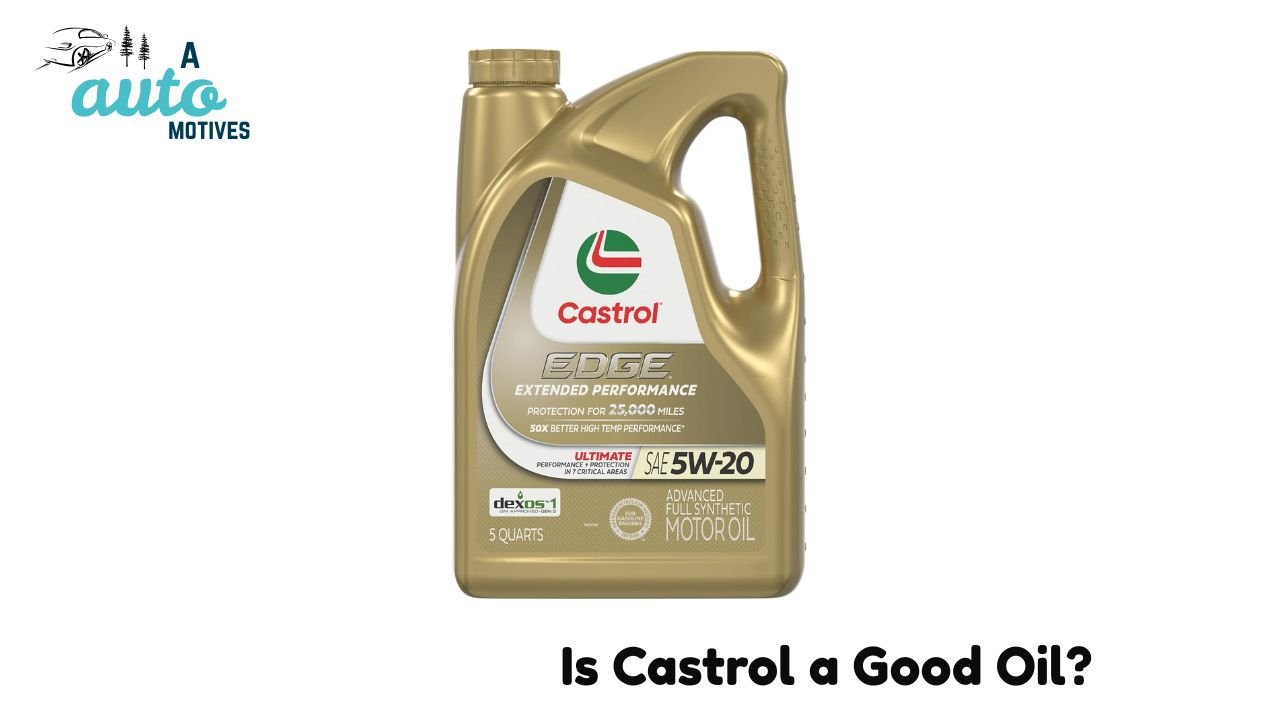
Now, let’s talk about Castrol—one of the oldest and most respected names in motor oil. I’ve tried Castrol EDGE 5W-30 and Castrol GTX Magnatec in different cars, and both impressed me in different ways.
Where Quaker State feels reliable and solid, Castrol feels refined—almost like your engine is running on silk. It’s engineered for modern engines that demand precision lubrication, especially under stress.
My Experience with Castrol
1. Cold Starts and Winter Drives
During a particularly harsh January, temperatures dropped below freezing for weeks. My car sat outside overnight, but every morning, Castrol started the engine smoothly. There was no delay or grinding sound—it just fired up as if it were summer. The thin, full-synthetic formula clearly did its job well in quick lubrication.
2. Long-Distance Performance
I tested Castrol EDGE on a cross-country trip that took me from humid southern states to cooler northern climates. The performance consistency was remarkable. No signs of oil thinning or burning smell even after 1,200 miles. The engine temperature stayed in the optimal range throughout, and the throttle response was noticeably sharper.
3. Stop-and-Go Urban Stress Test
In city traffic, Castrol GTX showed its strength. The oil kept the engine stable even during long idles at red lights. The oil’s detergent system also seemed to keep internal parts clean—no rough idling, no sluggish acceleration.
Technical Highlights of Castrol
-
Viscosity Grades: 0W-20, 5W-30, 10W-40
-
Oil Types: Full Synthetic (EDGE), Synthetic Blend (Magnatec), Conventional (GTX)
-
Certifications: API SN Plus, ILSAC GF-6, Dexos Approved
-
Additives Include:
-
Fluid Titanium Technology (EDGE line) for reduced metal friction
-
Detergents to fight sludge
-
Anti-wear agents for longer engine life
-
Oil change interval: Around 10,000–15,000 miles for full synthetic, depending on driving conditions.
What I Like About Castrol
-
Excellent Protection: Its titanium-based additive forms a strong film on metal surfaces.
-
Smoother Engine Feel: The reduction in friction is noticeable.
-
Great Temperature Range: Performs equally well in summer heat or winter cold.
-
Improved Fuel Economy: Slight but measurable gain in MPG.
-
Extended Drain Intervals: Lasts longer between changes.
What Could Be Better
-
Cost: Among the pricier options.
-
Availability of Certain Grades: Harder to find rare viscosity options.
-
Not Ideal for Older Engines: Like Quaker State, Castrol’s thin synthetics may not suit engines with worn seals.
Still, every time I used Castrol, I felt confident. The car simply ran smoother, especially under pressure. It’s the oil I’d pick before a long road trip or when testing a new engine build.
Who Should Use Castrol
If you:
-
Drive long distances or on highways frequently
-
Live in extreme weather conditions
-
Have a modern turbocharged or high-performance car
-
Want fewer oil changes and better efficiency
Then Castrol will meet—and possibly exceed—your expectations.
But if you’re:
-
On a tight budget
-
Driving an old car that burns oil
-
Looking for a basic conventional oil
You might want to look elsewhere.
Quaker State vs Castrol: The Real Comparison
Both oils have solid reputations, but they shine in slightly different ways. Think of it like comparing two great athletes—both winners, but with different strengths.
In my tests, Castrol delivered slightly better performance in extreme temperatures and long drives, while Quaker State impressed me with steady reliability and affordability.
Now, let’s dive deeper into how they differ in real-world metrics—viscosity, fuel economy, and longevity.
Quaker State vs Castrol: Which One Performs Better?
When it comes to engine oil, the real difference shows up not in a week—but over months of use. I’ve tested both Quaker State and Castrol across multiple oil change intervals, and while both brands are excellent, they behave differently under various conditions. Let’s go feature by feature.
1. Viscosity and Flow Performance
Viscosity determines how smoothly oil flows through your engine—especially during cold starts and high-heat conditions.
In freezing weather, Castrol EDGE 0W-20 started the engine more effortlessly. Its advanced formula kept the oil thin enough to circulate instantly. Quaker State also did well, but it felt slightly thicker on cold mornings.
In contrast, during long summer highway drives, Quaker State’s thicker stability proved valuable. The oil didn’t thin out even after hours of driving in 95°F heat.
My Take:
If you live in colder regions, go for Castrol.
If you deal with hotter climates or heavy loads, Quaker State performs better.
Rating:
-
Quaker State: 8.5/10
-
Castrol: 9.5/10
2. Additive Technology and Engine Cleanliness
Both brands pack their oils with additives that fight sludge, wear, and friction—but they take different approaches.
Quaker State focuses on balanced protection using detergent and friction modifiers. It keeps the engine clean without being overly aggressive. I’ve noticed minimal sludge buildup, even in older engines.
Castrol, on the other hand, uses Fluid Titanium Technology in its EDGE line. This advanced additive literally strengthens the oil under pressure. You can actually feel the smoother acceleration and quieter operation.
After 5,000 miles, when I checked the oil dipstick on my car with Castrol, the oil color was noticeably lighter than what I saw with Quaker State. That told me Castrol’s detergents were doing a better job at keeping contaminants suspended.
My Take: Castrol takes the lead in chemical technology and advanced protection.
Rating:
-
Quaker State: 8/10
-
Castrol: 10/10
3. Engine Protection and Longevity
The ultimate goal of oil is to protect your engine’s moving parts. In my experience, both did this remarkably well, but with subtle differences.
With Quaker State, I noticed excellent wear protection in normal driving. Even after 10,000 miles, there was no metal residue on the drain plug magnet. It’s consistent and reliable for long-term maintenance.
Castrol, however, shines when engines are pushed hard—like towing, high-speed driving, or stop-and-go heat. The titanium layer formed by its additives seems to reduce direct metal contact, which lowers friction and wear under stress.
If you drive normally, Quaker State is perfect. But if you often demand more power or drive aggressively, Castrol holds an edge.
Rating:
-
Quaker State: 8.5/10
-
Castrol: 9.5/10
4. Fuel Efficiency
When I tested fuel economy over a few tanks, the results were interesting.
On average, Castrol EDGE delivered a 2–3% improvement in MPG, particularly noticeable on highway drives. The engine felt freer and lighter under acceleration.
Quaker State Full Synthetic also improved mileage compared to conventional oil but not quite as much. Still, the difference isn’t huge unless you’re counting every drop of gas.
My Take:
Castrol slightly boosts efficiency more than Quaker State, but both are better than standard oil.
Rating:
-
Quaker State: 8/10
-
Castrol: 9/10
5. Extreme Temperature Performance
In summer or winter extremes, synthetic oil is tested to its limits.
When I drove through desert-like heat, Castrol EDGE resisted breakdown better. The oil stayed clear, thin, and stable even after long stretches of high-speed driving.
During an icy February week, Quaker State Full Synthetic also impressed me. It handled freezing starts with ease and kept my engine quiet. But under extreme cold, Castrol still circulated faster.
My Take:
For extreme climates, Castrol offers slightly better protection, but Quaker State isn’t far behind.
Rating:
-
Quaker State: 8.5/10
-
Castrol: 9.5/10
6. Oil Longevity and Maintenance
If you prefer fewer oil changes, both brands deliver long drain intervals.
With Quaker State Full Synthetic, I easily reached 8,000 miles before the oil started darkening heavily. Castrol EDGE lasted even longer—nearly 12,000 miles before I felt it was time to change.
That’s not to say Quaker State wears out quickly—it just doesn’t stretch quite as far. Castrol’s titanium formula holds up better under extended use, making it ideal for those who drive a lot or forget oil changes occasionally.
Rating:
-
Quaker State: 8/10
-
Castrol: 9.5/10
7. Pricing and Value
Price-wise, Quaker State wins. It’s usually 10–15% cheaper than Castrol for a full synthetic quart. For drivers who maintain multiple vehicles or change oil regularly, that difference adds up.
Castrol is slightly pricier, but you’re paying for longer drain intervals and advanced additives. In the long run, both end up costing nearly the same per mile of protection.
Rating:
-
Quaker State: 9/10
-
Castrol: 8.5/10
8. Overall Driving Feel
Let’s forget numbers for a moment. If I had to describe them in feel—Quaker State gives your car a calm, composed personality. It’s dependable, clean, and steady.
Castrol, on the other hand, feels energetic—like your engine is breathing better. Acceleration feels a bit sharper, idling smoother, and throttle response quicker.
In simple terms: Quaker State feels like comfort. Castrol feels like performance.
Final Verdict: Which One Should You Choose?
If you’ve read this far, you probably realize there’s no single winner for everyone. Both Quaker State and Castrol are exceptional oils—but they cater to different kinds of drivers.
Choose Quaker State if:
-
You value budget-friendly reliability
-
You drive a standard car for everyday commutes
-
You want consistent performance without premium pricing
-
You prefer smooth, quiet operation over aggressive response
Choose Castrol if:
-
You drive long distances or travel in extreme weather
-
You own a high-performance, turbocharged, or hybrid car
-
You want maximum engine protection and longer oil life
-
You don’t mind paying a bit more for cutting-edge performance
My Overall Winner: Castrol.
While Quaker State is dependable and efficient, Castrol’s edge in performance, temperature stability, and fuel economy makes it slightly better overall. But honestly, if you’re maintaining your car properly, either oil will keep your engine running strong for years.
FAQs: Quaker State vs Castrol
1. Which oil is better for high-mileage cars?
Castrol offers specialized high-mileage versions with seal conditioners to reduce leaks and oil consumption. Quaker State also has high-mileage blends, but Castrol performs better for engines above 100,000 miles.
2. Does Castrol improve fuel efficiency more than Quaker State?
Yes, slightly. Castrol’s Fluid Titanium Technology helps minimize metal friction, which improves MPG, especially on long drives.
3. Which is better for cold starts—Quaker State or Castrol?
Castrol synthetic oils have excellent low-temperature flow, making them better for freezing climates. Quaker State performs well but takes slightly longer to circulate.
4. How often should I change these oils?
For full synthetics, Quaker State can go 7,500–10,000 miles, while Castrol EDGE can stretch up to 12,000–15,000 miles depending on driving conditions.
5. Is Quaker State or Castrol better for hot weather?
Castrol resists oil breakdown better under extreme heat, making it ideal for desert or summer driving. Quaker State performs well, but Castrol’s formula stays more stable at higher temperatures.
6. Can I mix Quaker State and Castrol?
It’s not recommended. Each brand uses unique additive packages. Mixing them can reduce performance or affect protection quality.
7. Which one gives better long-term engine health?
Both maintain engines well, but Castrol’s stronger additive chemistry gives it an edge for long-term cleanliness and protection under stress.
My Honest Closing Thought
If you ask me what I’d pour into my own car today, I’d say it depends. For my daily commuter, I’d stick with Quaker State—affordable, reliable, and easy to find. But for my performance SUV or road trips across multiple states, I’d choose Castrol EDGE every single time.
Because sometimes, peace of mind isn’t about saving a few dollars—it’s about knowing your engine will stay calm, cool, and clean, no matter what the road throws your way.

